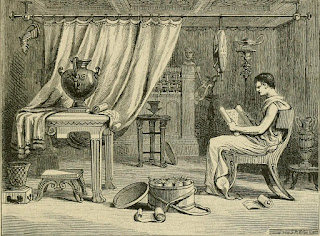Reading Notes: Paul's Letter to the Romans
Miguel Carvalho's Ancient Rome. (Link).
Paul's Letter to the Romans was a pretty fascinating read. Continuing the theme I picked up from Mark and Luke, Romans was written for a specific reason and in this case, an obvious recipient. When reading Romans, Paul's message is pretty evident. It seems to me like a cornerstone of the New Testament, and a piece of writing that is pretty significant in terms of the Gospel being shared. The first few chapters are directed more at the Jews, but by the end of Romans, Paul seems to be writing directly to the Gentiles. Rome was sort of the New York City of the time, and all different types of people were living there. While the letter makes it clear that Jews are the "recipients of the Gospel," the message that Gentiles are included in this salvation is evident. Agape, the Greek word for "brotherly love," is quickly made to be seen as something that can be seen as the translation of the law. It is clear by the way that Romans is written that Paul intended the letter to reach this multicultural capital and bring both Jews and Gentiles under the umbrella of one light. To Paul, while Jews remain God's elected people, from the works of Jesus a new Israel has been created that welcomes Gentiles. In terms of a structured piece of literature, the letter has a direct introduction. In it, Paul tells the city that he has not been to (yet, at this point) who he is and sets a pretense for the message he is about to share. He proceeds to write the letter as a way to set in stone his interpretation of the Gospel. Included in this Gospel is the message that Gentiles are included alongside Jews, but the writing is done in a way that appeals to both groups of people. The piece is made to convince both of Paul's message, not merely to set forth Paul's interpretation. It is a letter, but it is also a persuasive essay.




Hi Carl, I saw your reading notes post, and I wanted to chime in with some actual Paul stories: do you know about the Acts of Paul and Thecla? It was such a popular text! You won't get anything story-ful from Paul's letters, but plenty of people in the ancient world wanted to tell stories about Paul! Acts of Paul and Thecla in the Wikipedia article and here's the actual text online: Acts of Paul and Thecla
ReplyDelete